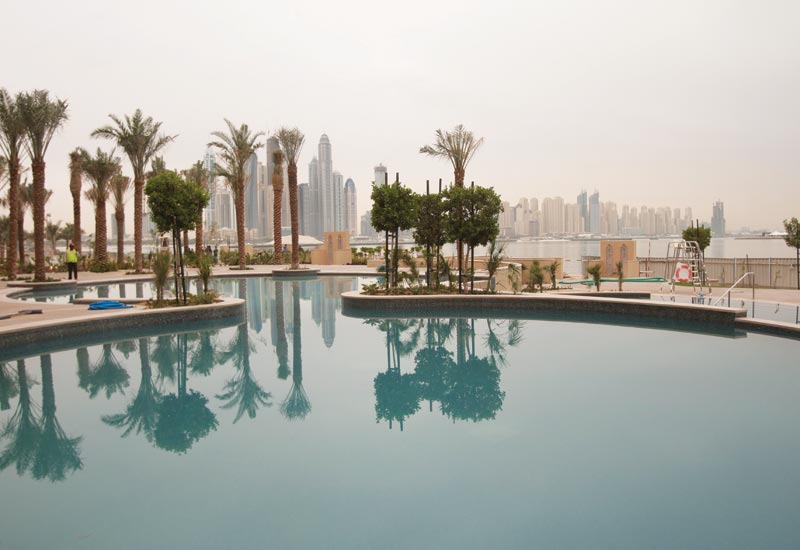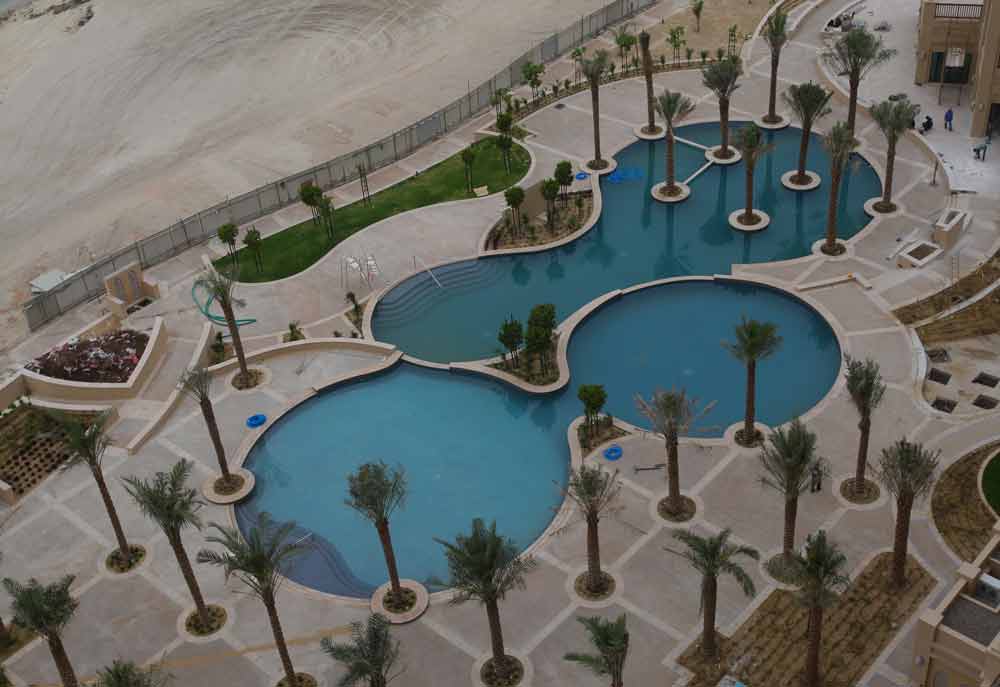At the Palm property, the story inspiring this is that of a Bedouin arriving at his final destination — the water after the desert. So as the guest enters the lobby, “it’s a continuation of their Bedouin journey”, says Van Kan, referencing the sandy colours of the lobby, the striking greenery that will be added and in the distance, the ocean visible through a large window at the far end of the lobby behind a reception desk.
“The journey begins at the moment of arrival in the lobby, as guests experience unfettered views of the Arabian Gulf through a ceiling high window,” says Van Kan of the DSA Architects International creation.
“This progression continues with an indoor garden and waterfall in the all-day dining restaurant symbolising earth and water, while a Baccarat crystal arrangement in the pan-China restaurant creates a sense of whimsy and reflects the light, alongside transparent decorative bamboo stalks. This cohesion extends to the guestroom suite product, with extended balcony space overlooking the sea and natural skyline,” he explains.
Creating a sensory experience is also important, continues Van Kan, as he talks at length about the scents of oud, frankincense and bukhoor that he envisages will be wafting through the lobby, reminiscent of the Bedouin journey.

| Advertisement |
The feeling he hopes to convey upon arrival is one that is comfortable and uncluttered, the reception desk far away and concierge hidden behind drapery to avoid that traditional hotel welcome — something that will evoke the sense of a continued journey for the guest and a warm, homely feel for the local market.
This residential market is of vital importance to the success of the hotel, with Van Kan relying heavily on its varied restaurant portfolio to draw in the punters time and again.
Chinese and Brazilian are two of the cuisines on offer, but it is the GM’s vision for the showmanship in each restaurant that is so appealing, as well as many of the outlets’ capabilities to take on different guises in daytime and evening.
He has also deliberately avoided taking on third-party operators, the aim instead to bring in their own “authentically local people, dishes and tastes”.
“That’s why we’ve chosen to stay away from signature restaurant names,” says Van Kan. Bringing in international names raises prices for your local community, whereas home-grown restaurant concepts can be more accessible, he explains.
“I honestly believe if we do it home grown — you put a lot more pride in it. Even people living on the Palm are conscious of what they’re spending,” adds Van Kan.
Article continues on next page ...










 Search our database of more than 2,700 industry companies
Search our database of more than 2,700 industry companies










Jun 7, 2012 , United Arab Emirates
it sounds wonderful place to work for, Fairmont is a great company and very proud of it